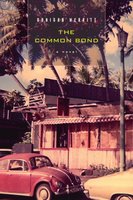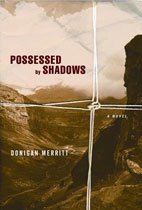 I have been a writer for more than forty years and the author of seven, soon to be eight, published novels. The 35th Feria Internacional del Libro de Buenos Aires (the Buenos Aires Book Fair, the largest book event in all of Latin America) is the first book fair I have ever attended. Not from lack of interest, but from lack of access. In this case, I am living through pure happenstance just two blocks from the massive venue where the book fair takes place in the Palermo suburb of Buenos Aires.
I have been a writer for more than forty years and the author of seven, soon to be eight, published novels. The 35th Feria Internacional del Libro de Buenos Aires (the Buenos Aires Book Fair, the largest book event in all of Latin America) is the first book fair I have ever attended. Not from lack of interest, but from lack of access. In this case, I am living through pure happenstance just two blocks from the massive venue where the book fair takes place in the Palermo suburb of Buenos Aires.Apparently one of the attractions of a book fair is the literary stars who appear and perform. Our stars were Annie Proulx and Junot Díaz. They drew the crowds. But what interested me were the opening acts, those writers who have not won enough prizes or made enough money or had movies made from their work, who spoke and read from what were essentially cubbyhole spaces squeezed in among the placards and displays within the stands of publishing companies or at the stands maintained by the embassies from their home countries, who were not offered a quiet and comfortable hall, who struggled to be heard amid ambling and noisy curious crowds of passerbys, peeking in to see if anything interesting might be going on there. Writers like me.
I had two readings at the fair, once from my current novel, The Common
 Bond, and then from the preceding novel, Possessed by Shadows. Those readings took place at the stand of the American Embassy, which had made a concerted and valiant effort to locate and promote the works of American writers living in Buenos Aires; more of them than you might imagine, more than I would have guessed. The audiences were small, although frequently filling the available space; fewer than twenty-five for each reading and Q&A. This was typical for the readings by other authors I attended.
Bond, and then from the preceding novel, Possessed by Shadows. Those readings took place at the stand of the American Embassy, which had made a concerted and valiant effort to locate and promote the works of American writers living in Buenos Aires; more of them than you might imagine, more than I would have guessed. The audiences were small, although frequently filling the available space; fewer than twenty-five for each reading and Q&A. This was typical for the readings by other authors I attended.I was particularly impressed with Michael Casey's book (and not alone, since it just got a favorable review in The New York Times) --- Che's Afterlife: The Legacy of an Image, published by Random House this year. Mr. Casey has not written just another biography of the infamous Che Guevara, but instead, quite imaginatively, describes a worldwide search for the impact, the iconographic power, of the "image" of Che. His reading drew an overflow crowd (meaning more than twenty people), as well as a giggling covey of Argentine teenage school girls who waited at the edges of the stand for Mr. Casey to finish and come out so they could swarm around him while their friends took photographs. (It is possible the young ladies took the fortunately young and handsome Mr. Casey, with his rollicking Australian accent, to be a movie star.)
While I was not accorded rock star status, my audiences were, to my pleasant surprise, engrossed in my readings; it was kind of stunning, actually. I think the exotic settings interested the Argentines in particular. The Common Bond is principally set in Hawaii, and I read Chapter Two, which is mostly narrative, graphically describing the protagonist's return to the island that had been his home during the first half of his life. Illustrative of how closely some in the audience were listening, one person asked me what "laupahoehoe" is, an Hawaiian word used in the opening paragraph. (It is the geological term for flat, undulating, lava, as opposed to a'a, which is the sharp, spiky type.)
I was also asked a number of times if I had been to all the places described in my books (yes), and, that most dreaded of all questions authors are asked, did I write about my own life experiences (a qualified no). Most writers, I believe, do not want readers to suppose that their novels are more or less diaries from real life. On the other hand, I, for one, find it impossible to write about things I do not know, or can at the very least have the ability to imagine, as thoroughly as if I were in full possession of an actual experience.
It was heartening for an author to be surrounded by thousands and thousands of readers, of book lovers, especially at a time when many of us are discussing the critical health of the book, not to mention of readers, as well. Some of us wonder among ourselves were it not for the almost genetically ingrained desire within children to read stories and fantasize other lives and other worlds, who then grow up to form readers clubs to honor literature and reading, we might as well be writing with our fingers on the surface of the sea.
---Donigan Merritt






